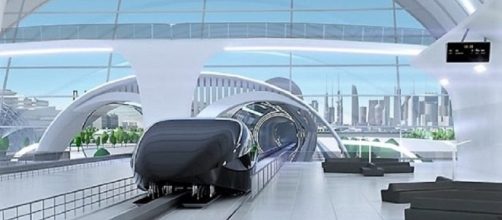On June 20 2017, Hyperloop India decided to join forces with crowd funding platform Ketto in order to raise capital for the last stages of building its pod prototype. They’ve also partnered with Workbench Projects in Bengaluru to achieve this goal. Being primarily a student collaboration, they plan to leverage their performance in global incentive prize competitions to leapfrog transportation in India.
What is the Hyperloop?
Basically, the idea stipulates an extended tunnel network connecting distant cities and pods that would levitate using Mag-Lev technology.
This friction-free environment would allow the pod to hit speeds of around 1000 mph, twice that of an airplane.
Envisioned and proposed by Elon Musk in a paper in 2013, he, along with a group of engineers from his companies Tesla and SpaceX worked on the initial conceptual modeling. SpaceX and Tesla websites, also published an early design of the system and Musk invited people from all over the world to join and better the project. Since then, he has gone on to open source the projects and let other companies take charge.
Elon Musk’s SpaceX remains instrumental to the development of this cutting-edge tech, with SpaceX building a 1-mile-long test track near it’s Hawthorne facility in California to feature pod designs supplied by third party companies from all over the globe.
About Hyperloop India
Hyperloop India, sponsored by the giant Hyperloop One was founded in 2015 by a small group of students from Birla Institute of Technology and Science Pilani. Since then, the team has expanded and it now features personnel of more than 80 students from BITS, Indian School of business, IIM Ahmedabad, National Institute of Design and Symbiosis International University. Sibesh Kar, just 20 years of age and the founder and team leader of India’s largest multi-disciplinary multi-campus student-driven team, has urged the community to lend a helping hand and in realizing their goals.
Partnering with Kar’s Hyperloop India is Workbench Projects CEO Pavan Kumar, who revealed that it requires Rs.
75 lakh ($1.2 million) to build a pod and that Rs. 35 lakh (about 500 grand) has been raised so far. He expects the Indian public to chip in at least another Rs. 30 lakh (4.5 grand).
Significance of the project
India’s transport sector is in pretty bad shape and hasn’t seen much of a technological breakthrough since the turn of the century. Hyperloop seems like the perfect solution – it provides the revolutionary impetus to guide India’s strides in its fast-paced economy and the conditions for embracing this super fast, inexpensive ‘Fifth Mode of Transport’ are ideal.


